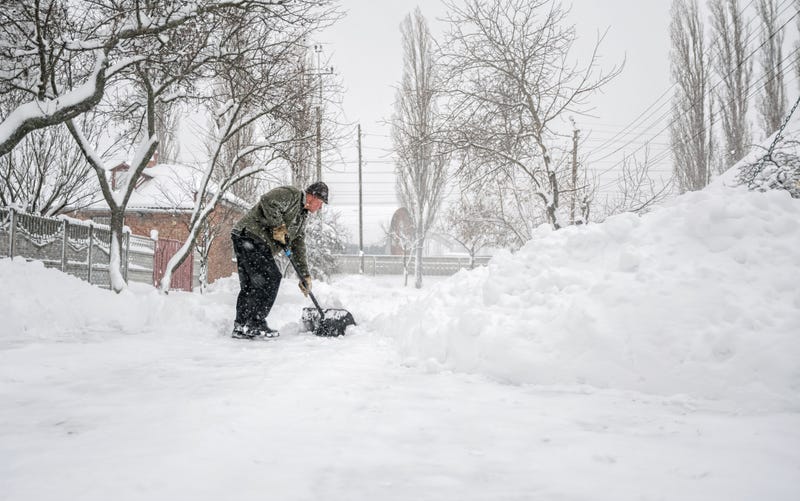
Buffalo, N.Y. (WBEN) - The Erie County Department of Health is urging residents to be cautious after two people died from overexerting themselves while shoveling snow on Wednesday.
Erie County Health Commissioner Dr. Gale Burstein says shoveling is considered an aerobic exercise, and it's important to know when to take a break.
"Time yourself. Limit your your shoveling to maybe 15 minutes at the most, and then take a break. You can set a timer on your phone, and then that'll go off and you'll take a break. But if your heart is pounding, if it's beating fast, if you're sweating a lot, that means that you could be getting into trouble and definitely take a rest," stated Dr. Burstein in an interview with WBEN. "If it doesn't resolve in a minute or two, then you should definitely reach out and call for help."
Dr. Burstein explains that there a few steps every person should take before they venture out to clear off their driveways.
"Before we exercise, many times we warm up. So I recommend before you go out to shovel snow, to warm up. That would include like stretching and maybe marching in place, just to get your blood circulating. Just so your body's ready to go out and start to shovel," stated Dr. Burstein. "Also, we want to make sure that you dress appropriately. You want to make sure that you dress warmly, and are able to stay dry. But also dress in layers, because if you're sweating, your clothes get wet. In the cold, the wet clothes kind of suck the heat out of your body."
Regional Medical Director at WNY Immediate Care Dr. Joseph Chow says the likelihood of having some type of cardiovascular event increases as a person gets older, but over-exhaustion can happen at any age.
"Even if you are young and you start shoveling and you're getting those symptoms - feeling short and short of breath, chest pain, faintness. Even if you are young, you should still follow the same, take a break and rest and make sure it goes away or doesn't progress," Dr Chow explained to WBEN. "If you feel those, no matter what age you're in, you should take pause on that and make sure that you treat it seriously."
Dr. Chow says if a person has pre-existing health conditions, they should contact their medical provider to come up a plan.
"If you've been sedentary, if you have diabetes, hypertension, heart disease, certainly, before the snow starts flying, it's always a good idea to touch base with your primary care doctor and say, 'Hey, listen, the snow is going to be coming soon. I've got these risk factors kind of give me a sense of, you know, how much should I exert or not?' Because, again, snow can come very fast, and it is a very vigorous activity."
